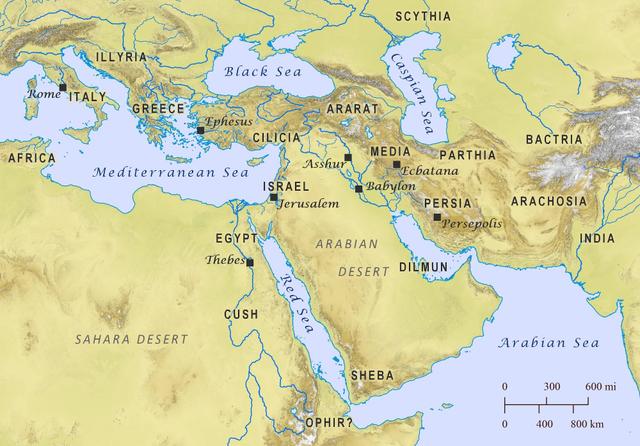Death is necessary to validate a covenant; death played a role in the Old and the New Covenants.
The Pauline Author is again comparing the Old Covenant and the New to show that the New is greater: For where a covenant is, there must of necessity be the death of the one who made it. For a covenant is valid only when men are dead, for it is never in force while the one who made it lives (vv 16–17). Last wills and testaments are not valid until the person dies. For a will to go into effect, there must be a death.
The Old Covenant was made valid with blood: Therefore even the first covenant was not inaugurated without blood (v 18). The Pauline Author describes the giving of the law detailed in Exodus 24—For when every commandment had been spoken by Moses to all the people according to the Law, he took the blood of the calves and the goats, with water and scarlet wool and hyssop, and sprinkled both the book itself and all the people, saying, “This is the blood of the covenant which God commanded you” (vv 19–20).
The Lord made a covenant with the Israelites, and they agreed to it. Then Moses sacrificed young bulls and goats and sprinkled both the tabernacle and all the vessels of the ministry with the blood (v 21) to ratify the covenant.
This represented the New Covenant that would be ratified with Christ’s blood. The Old and the New Covenants required blood. And according to the Law, one may almost say, all things are cleansed with blood, and without shedding of blood there is no forgiveness (v 22).
The Pauline Author is building to the conclusion that the daily temple sacrifices were a mere shadow of what was to come.
Biblical Text
16 For where a covenant is, there must of necessity be the death of the one who made it. 17 For a covenant is valid only when men are dead, for it is never in force while the one who made it lives. 18 Therefore even the first covenant was not inaugurated without blood. 19 For when every commandment had been spoken by Moses to all the people according to the Law, he took the blood of the calves and the goats, with water and scarlet wool and hyssop, and sprinkled both the book itself and all the people, 20 saying, “This is the blood of the covenant which God commanded you.” 21 And in the same way he sprinkled both the tabernacle and all the vessels of the ministry with the blood. 22 And according to the Law, one may almost say, all things are cleansed with blood, and without shedding of blood there is no forgiveness.
Check out our other commentaries:
-
Acts 10:30-33 meaning
Cornelius Asks Peter About God’s Message Cornelius recounts the moment where the angel visited him, telling him that God had heard his prayers, and that he...... -
Jonah 1:1-3 meaning
The LORD sends Jonah to Nineveh. But Jonah goes to Tarshish to run away from the LORD....... -
Hosea 2:2-5 meaning
The LORD urges His children to denounce their mother for her shameful behavior, lest they follow her and fall under the same judgment that awaits...... -
Hebrews 6:13-18 meaning
God keeps His word. He blesses those who are patient and obedient, like Abraham. This should encourage Christians to pursue maturity. The blessings of living...... -
Proverbs 1:1-6 meaning
Solomon begins The Book of Proverbs by establishing the authority from which he writes. He then fires off a set of clauses that set up......



